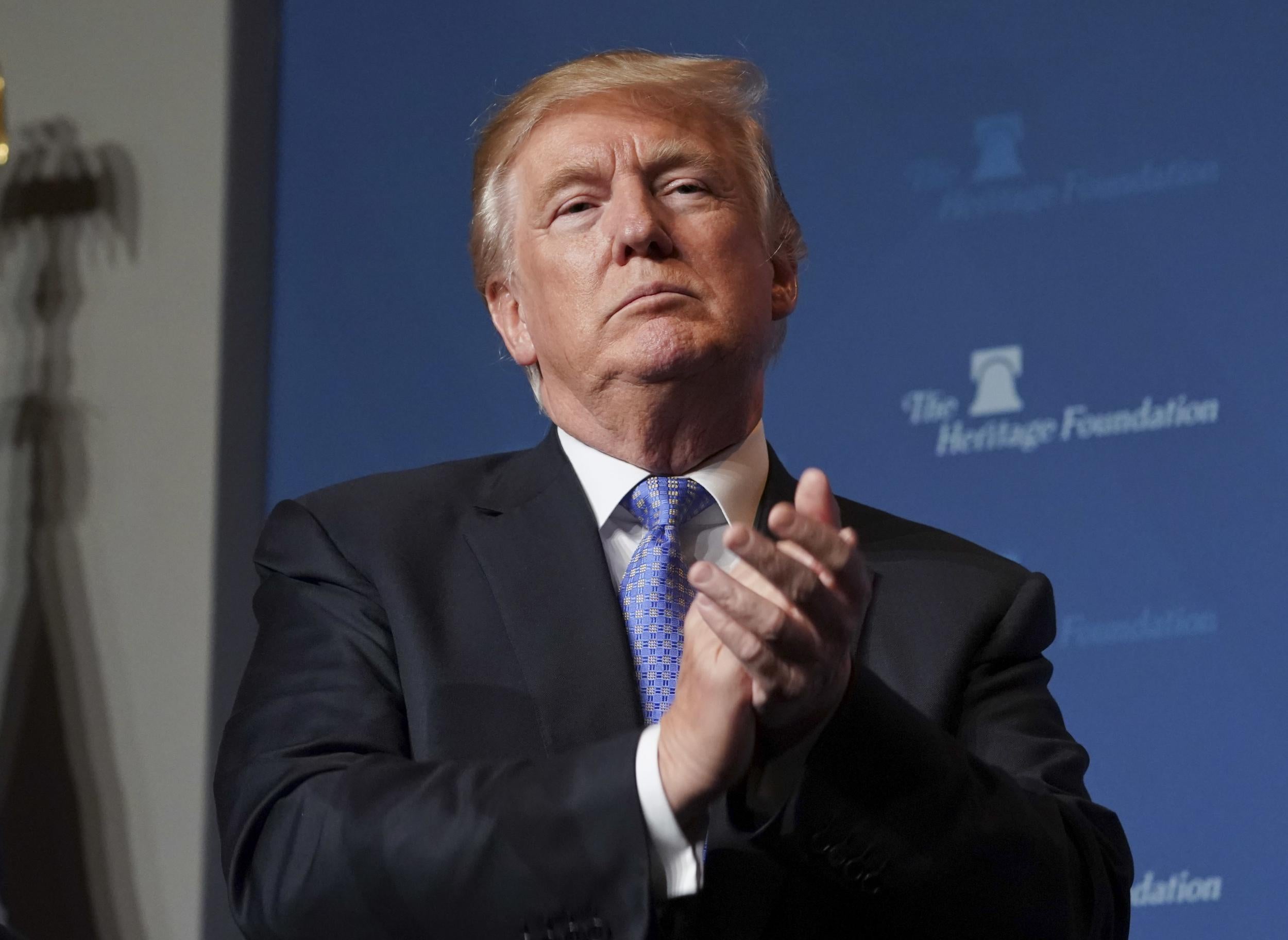As a former US marine, I see Trump's phone call with a widow being used as a political football and feel like everyone's missed the point
Civilians in the US don't seem to understand that we are fighting what we've termed the Forever War

Your support helps us to tell the story
From reproductive rights to climate change to Big Tech, The Independent is on the ground when the story is developing. Whether it's investigating the financials of Elon Musk's pro-Trump PAC or producing our latest documentary, 'The A Word', which shines a light on the American women fighting for reproductive rights, we know how important it is to parse out the facts from the messaging.
At such a critical moment in US history, we need reporters on the ground. Your donation allows us to keep sending journalists to speak to both sides of the story.
The Independent is trusted by Americans across the entire political spectrum. And unlike many other quality news outlets, we choose not to lock Americans out of our reporting and analysis with paywalls. We believe quality journalism should be available to everyone, paid for by those who can afford it.
Your support makes all the difference.We call it the “Forever War”. Waged for 16 years, from Afghanistan and Pakistan, to Iraq, Syria, Yemen, North Africa and beyond, it’s been going on so long that it’s become mere background noise in American civil society. This latest debacle involving the phone call of President Trump to a widow whose husband had been killed in Niger is about more than a short-tempered narcissist at the helm of the most powerful military in the history of humankind. It signals what has been a long erosion of the bridge between civil society and the military.
In April 2012, I remember sitting in an Alaska-style hut in Afghanistan, listening to a chaplain try to make meaning out of the death of one of our fellow Marines. I remember the words sounding shallow, meaningless, trying to paper over the hard reality we had just seen – that of a young man blown to pieces on the side of a dirt road by an improvised explosive device mere hours before. Ringing in my shocked brain were the words of Joseph Heller: “Spirit gone, man is meat.”
On 4 October, a 12-man group of US Army Special Forces in Niger were returning from a meeting when they were ambushed by 50 Isis fighters. While the rate of deaths for service members in combat is much lower in post-9/11 conflicts – something like one in 450 – that number conceals the true nature of the toll of the conflict.
The risk of death varies widely based on military operational specialty, time, and place of deployment. No group has carried a heavier burden, or suffered a higher death toll, than America’s elite irregular warfare units, such as Army Special Forces and Navy Seals.
To make meaning of violent death in the name of something service members can’t see, smell or touch, we wrap the deaths of friends and brothers in layers upon layers of ritual – the battlefield cross, the codes of behaviour in transporting the body, the roll call, the passing of the flag to the family.
For civilians, the process is also wrapped in ritual – we imagine the death of our sons and daughters in uniform as a redemptive, sacrificial act.
In the aftermath of the deaths in Niger, public criticism of the President for not calling the family members of the slain quickly snowballed, reaching a new flashpoint on the night of 17 October, when a democratic Congresswoman, Frederica Wilson, claimed that the President said “he knew what he signed up for” when speaking with the widow of the fallen soldier in Niger.
Perhaps the President was trying to sincerely console the mother. Perhaps he is as oblivious to the power of his words as Commander-in-Chief as he seems. What his lack of tact reveals isn’t so much his intent, malice, or incompetence as a public that lacks the ability to process and make sense of the true cost of a Forever War.
We are now engaging in public debate and political bludgeoning done in the name of dead soldiers. Are we Americans so unable to speak plainly about the risks and costs of war? Are we so unable to process deeply, and mourn communally, the price paid in blood, on foreign soils, in our name?
I see a public that is deeply and disturbingly disconnected from the wars fought in its name in 2017. I see a military that has turned inward, away from criticism and oversight. I see a President – a man who sits at the head of both American civil society and the military – who doesn’t understand the job he has, nor why he was elevated to the position he holds.
As a marine, and now as a civilian, I’ve struggled to make meaning of war-time deaths. To find purpose in them. The rituals I participated in as a marine helped me bridge the gaps in my own understanding.
What I hope comes from an atrocious handling of what should have been a moment of national unity is an increased public awareness of the Forever War, and a rebuilding of the bridge of understanding between the US military and the society it protects, which has been so deeply and fundamentally eroded.
Peter Lucier is a marine veteran (2008-2013) who served in Afghanistan
Join our commenting forum
Join thought-provoking conversations, follow other Independent readers and see their replies
Comments